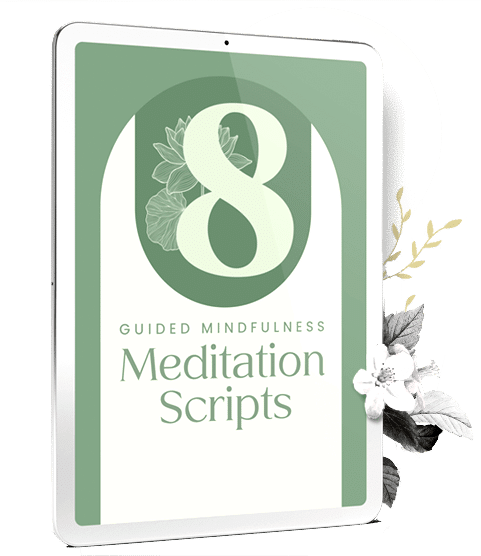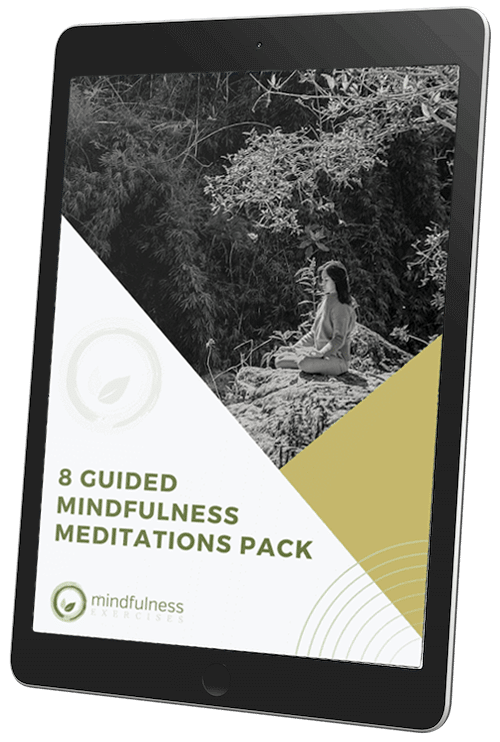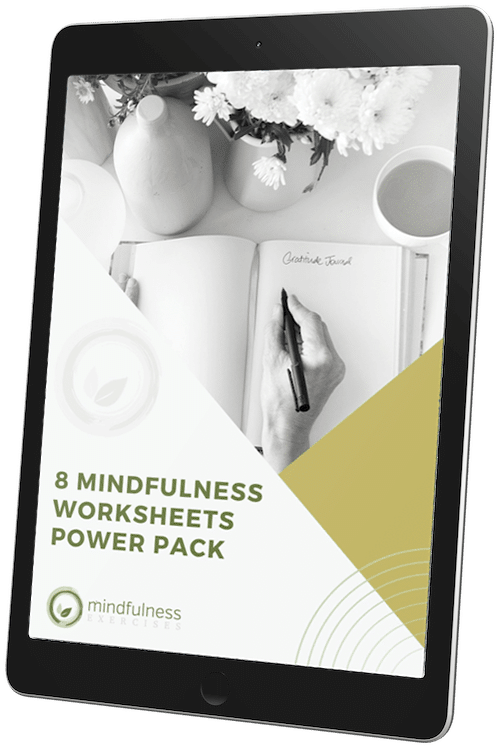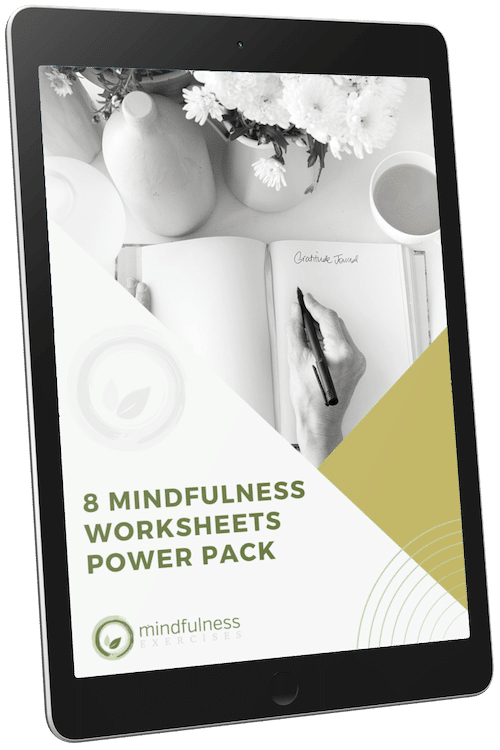Getting sufficient quality sleep is essential for our health and well-being, and guided meditation for sleep can help. Learn more about sleep meditation, why it’s so effective, and how to begin.
While we’re sleeping, the body and brain undergo important restorative tasks that help maintain good physical and mental health. Sleep protects against stress, anxiety and depression. Sleep improves memory and attention and reduces our risk of dementia. Those who sleep well are less likely to be obese, develop diabetes, or suffer cancer, heart attacks or stroke. But what do we do when we cannot sleep?
You may be familiar with sleep hygiene practices. These include going to bed at the same time each night in a dark, comfortable space, refraining from technology, exercise or caffeine before bed, and other lifestyle tips. What you may not know is that researchers cite meditation as a more effective way to get a good night’s rest.
Guided sleep meditation is especially successful because it allows us to lie back, relax and simply listen.
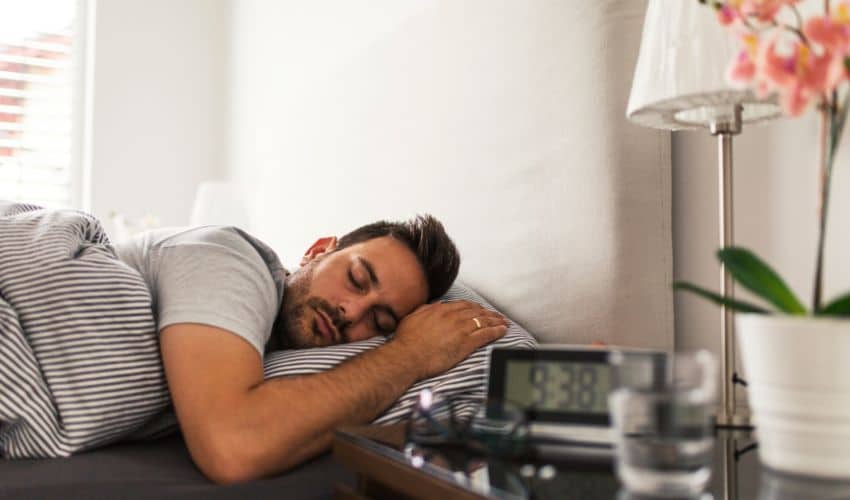
Best Guided Meditations for Sleep
The best guided meditations for sleep are a lot like other forms of meditation. In fact, they may be one and the same. Guided sleep meditations focus on the breath, the body, or qualities of the heart, such as gratitude or loving-kindness. While each sleep meditation may have a different focus, they’re all meant to quiet the body and mind, helping you connect to an innate sense of calm that’s more conducive to sleep.
The following popular sleep meditations have been hand picked from the hundreds of free guided meditations available on Mindfulness Exercises. Each will ease you into a state of deep relaxation. The best sleep meditations guide your attention away from the churning mind, to the areas of your body where you’re already grounded, peaceful and calm.
Links:
What is Guided Meditation for Sleep?
Guided meditations for sleep may be in audio or video format. Guided sleep meditations calm the mind and relax the body, creating balance in the autonomic nervous system which helps us fall asleep.
Unlike day-time meditation, in which we’re meant to remain alert and awake, sleep meditation invites us to fall asleep. To promote this, meditation for sleep is practiced lying down in our beds at night.
Sleep meditation quiets the mind by guiding our attention away from intrusive thoughts and rumination. We learn to remain more present and embodied, despite strong emotion. Opening our hearts through mindfulness of beneficial emotions such as joy, gratitude, awe, loving kindness and compassion also puts us at greater ease.
If the sympathetic nervous system (fight, flight or freeze mode) is keeping us awake at night, sleep meditation brings us back to balance by promoting activation of the parasympathetic nervous system (our rest and digest mode).
Research finds that sleep meditation helps us fall asleep sooner and sleep more soundly throughout the night.
Who are Guided Sleep Meditations for?
Sleep meditations are for anyone who’s having trouble falling asleep or staying asleep. It’s a beneficial practice no matter the cause of your lost sleep, and anyone can do it.
Beginners: Guided meditation is perfectly suited for beginners. No training or experience is necessary, all we have to do is listen.
Sleep Medication Users: Unlike pharmaceutical sleep aids, meditation is free and free from negative side effects. In a study of those with chronic insomnia, 87.5% percent of participants reduced or discontinued use of sleep medication after just 8 weeks of meditation.
Chronic Illness Patients: Guided meditation helps alleviate the stress, depression, and anxiety of chronic illness, which correlate with lack of sleep. This allows for a positive feedback loop that can help anyone whose sleep is impacted by illness better address their health issues.
Chronic Pain Patients: Chronic pain significantly disrupts people’s lives, in part by preventing quality sleep. Multiple studies find that mindfulness meditation is an effective means of reducing perception of pain, allowing those who practice to get better sleep.
Busy, Stressed People: Stress and busy-ness keep us awake at night. In a study of resident physicians, some of the busiest and most stressed people, those who participated in a 4-week guided meditation intervention not only fell asleep sooner, but reported higher quality sleep.
Kids: Age-appropriate sleep meditation can help kids fall asleep, too. At least one study has found that kids with ADHD slept better after using a sleep meditation app.
Benefits of Guided Sleep Meditation
There are infinite causes and conditions which keep us awake at night. Guided meditations for sleep potentially address them all. Meditation benefits the body, mind and spirit, putting us at ease.
Improved Mindfulness: Meditation teaches us to stay present with this moment, just as it is. This helps us to let go of the thoughts and emotions that might otherwise keep us awake. Presence also helps us release old habits that may contribute to our lack of sleep.
Improved Mental Health: Stress, anxiety and depression contribute to sleeplessness, while the inability to fall asleep can make these conditions seem worse. Meditation cultivates beneficial states of mind which minimize depression and anxiety, allowing us to sleep better.
Improved Physical Health: Those who meditate regularly benefit from greater self-compassion and self-esteem, which are linked to self-care and improved physical wellbeing. Meditation is an ally in shifting perceptions regarding illness and pain and making better health choices for better sleep.
How to Practice Guided Meditation for Sleep
Falling asleep to music can be nice, but research shows guided sleep meditation is more effective. To begin a guided sleep meditation practice, you first need a selection of sleep meditations. Mindfulness Exercises has hundreds of free guided sleep meditations. Using a meditation script, you can even record your own.
Practice sleep hygiene: Sleep meditation works best when coupled with sleep hygiene practices. Avoid exercise, caffeine, technology or heavy meals in the afternoons and evenings, although do exercise daily in the morning! Go to bed at the same time each night in a dark, warm, quiet and comfortable place.
Choose a recording: You’ll find sleep meditations that focus on the breath, the body, visualizations, counting or heart-based practices such as gratitude and compassion. The one that works best for you is likely the practice that you enjoy most. You may need to try several before discovering your favorites.
Ready yourself for sleep: Listen to the recording in the exact conditions you’ll be sleeping in. Put your device on do-not-disturb and if you can, set it to turn off at the end of your meditation. Lie down in bed with the lights off, and do nothing but listen.
Remain lightly focused: Sleep meditations aren’t about forcing yourself to go to sleep. Keep your attention on the voice of the guide, but hold it lightly. Find a balance between effort and complete relaxation.
If at any time you find your mind has wandered, rejoice in the fact that you noticed, and return your attention to the meditation. Refrain from self-criticism or wondering why or what the mind wandered to. Just turn the mind around, and again follow your guide.
As with any type of meditation, sleep meditation takes practice. Be gentle with yourself and do your best to let go of expectations. Practice consistently, and trust the results will come.




